MVNOs / Mobile Brands and Wholesale Agreements
In the dynamic realm of telecommunications, Mobile Virtual Network Operators (MVNOs) and Wholesale Agreements play a pivotal role in shaping the competitive landscape. As the industry continues to evolve, understanding the intricacies of these entities becomes crucial for both seasoned professionals and newcomers alike. This comprehensive guide aims to shed light on the concept of MVNOs, delve into the mechanics of Wholesale Agreements, and explore the symbiotic relationship between the two. For Roaming agreement see here.
The relationship between MVNOs and MNOs or MVNAs is inherently symbiotic. MVNOs gain access to established network infrastructure, enabling them to focus on service innovation and customer acquisition. In return, MNOs benefit from additional revenue streams, increased network utilization, and economies of scale.
Wholesale Agreements represent the contractual arrangements between MVNOs and MNOs or MVNAs, governing the terms of access to the latter’s network infrastructure. These agreements define the parameters of the partnership, including pricing, service quality, and technical specifications.
What do you need to know about Wholesale Agreements
- How can you get a Wholesale agreement?
- What is normally part of a Wholesale Agreement?
- What are the Do’s and Don’ts of Wholesale Agreement Negotiations?
- What is the impact of 5G on Wholesale Agreements?
- What are the advantages and disadvantages of a wholesale agreement with a MVNA or with an MNO?
- What are the 10 biggest mistakes regarding a wholesale agreement?
- Is roaming part of the wholesale agreement?
- Can an MVNO have multiple wholesale agreements? and does this make sense?
- Summary of Wholesale agreements for MVNOs and Mobile Brands.
- Frequently Asked Questions (FAQs)
How can MVNOs get a Wholesale agreement?
Acquiring a wholesale agreement in the telecommunications industry involves a series of negotiations and discussions. This can be with a Mobile Network Operator (MNO) or, in some cases, a Mobile Virtual Network Aggregator (MVNA). Note: In most cases the MVNA is also an MVNE (the differences between a MVNE and MVNA are described here). Remember that the process may vary depending on the specific policies and procedures of the MNO or MVNA you are engaging with. Effective communication, transparency, and a clear understanding of your business requirements are key elements in successfully obtaining a wholesale agreement.

Here are the steps you can take to obtain a wholesale agreement:
Research and Identify Potential Partners:
- Conduct research to identify MNOs/MVNAs that align with your goals.
- Consider factors such as network coverage, services offered, and the reputation of the potential partner.
Contact MNOs or MVNAs:
- Reach out to MNOs/MVNAs to express your interest for a partnership.
- Initiate discussions to understand their wholesale agreement offerings and discuss how they align with your business needs.
Implementation and Launch:
- Work closely with the MNO/MVNA to implement the aspects of the agreement.
- Plan for a successful launch of your services to end-users.
Technical Integration:
- Discuss technical integration requirements with the MNO or MVNA to ensure a smooth implementation process.
- Clarify any technical specifications, compatibility, and testing procedures.
Legal and Regulatory Compliance:
- Ensure that the agreement complies with legal/regulatory requirements.
- Seek legal counsel to review/finalize the terms of the agreement, ensuring that it covers all necessary aspects and protects your interests.
Negotiate Terms and Conditions:
- Engage in negotiations to define terms/conditions of the agreement.
- Discuss elements such as network access, service level agreements (SLAs), pricing models, and any specific requirements or customizations.
Review and Finalize:
- Review all negotiated terms/conditions with your team and legal advisors.
- Finalize the agreement with the MNO or MVNA, ensuring that both parties agree, and all details are accurately reflected.
Financial Considerations:
- Clearly understand the financial aspects of the agreement, including wholesale rates, revenue-sharing models, and any additional fees.
- Ensure that the financial terms are viable for your business model.
Understand Your Business Requirements:
- Clearly define your business requirements, including the type of services you want to offer, target market, and any specific technical or regulatory considerations.
Service Level Agreements (SLAs):
- Define and agree upon service level agreements that specify the performance metrics, uptime commitments, and support levels.
What is normally part of a Wholesale Agreement for MVNOs?
- Network Access: Specifies the level of access granted to the MVNO, covering data speeds, coverage areas, and any restrictions.
- Service Level Agreements (SLAs): Outlines the quality-of-service commitments, including performance metrics, uptime guarantees, and customer support.
- Pricing Models: Details the financial arrangements for Data, Voice and SMS, encompassing wholesale rates, revenue-sharing models, roaming and any additional fees.

What are the Do’s and Don’ts of Wholesale Agreement Negotiations?
- Thorough Research: Conduct in-depth research on market trends, regulatory requirements, and the specific offerings of both parties, this lays the foundation for informed negotiations.
- Transparent Communication: Foster open transparent communication to establish a strong foundation for the partnership and align expectations.
- Flexibility: Build flexibility into the agreement to accommodate changes in technology, market conditions, and business strategies.
- Neglecting Compliance: Avoid neglecting regulatory compliance, ensuring that the agreement adheres to local and international standards.
- Overlooking Scalability: Consider the scalability of the agreement to accommodate future growth and technological advancements.
- Ignoring Legal Counsel: Do not underestimate the importance of legal expertise in negotiating and drafting Wholesale Agreements.
What is the impact of 5G on Wholesale Agreements?
As the telecommunications industry undergoes a transformative shift with the introduction of 5G network technology, the dynamics of Wholesale Agreements between Mobile Network Operators (MNOs) and Mobile Virtual Network Operators (MVNOs) are evolving.
This section delves into the profound impact of 5G on wholesale agreements, examining how MVNOs are adapting to this cutting-edge technology, the challenges they face, and the opportunities that arise in this new era.

The following 5G points have impact on your wholesale agreement
Evolving Business Models: The introduction of 5G necessitates a reevaluation of business models within wholesale agreements. MVNOs and the MNOs may explore innovative revenue-sharing models and pricing structures to accommodate the unique features and capabilities of the 5G networks.
Industry Collaboration and Standards: To harness the full potential of 5G, collaboration between MVNOs and MNOs is paramount. Wholesale agreements must adapt to evolving industry standards and collaborative frameworks to ensure seamless integration and interoperability in the 5G ecosystem.
Regulatory Considerations: The implementation of 5G technology comes with its own set of regulatory considerations. Wholesale agreements need to be crafted with a keen understanding of the regulatory landscape to ensure compliance and mitigate potential legal challenges.
Future Opportunities: As 5G continues to mature, MVNOs can explore new opportunities for service differentiation, tapping into the capabilities of this advanced technology. Wholesale agreements become key instruments in shaping these opportunities and fostering a symbiotic relationship between MNOs and MVNOs.
Addressing Security and Privacy Concerns: With the increased connectivity and data throughput of 5G, addressing security and privacy concerns becomes paramount. Wholesale agreements should incorporate provisions for robust security measures, ensuring the protection of user data and the integrity of the network.
The following 5G points have impact on your wholesale agreement
Enhanced Network Capabilities: The advent of 5G brings with it the promise of substantially increased data speeds and significantly reduced latency. MVNOs, in collaboration with MNOs through wholesale agreements, can capitalize on these enhanced network capabilities to provide users with faster and more responsive services.
Expanded Connectivity: One of the hallmarks of 5G is its ability to support a massive number of connected devices simultaneously. This expanded connectivity creates new opportunities for MVNOs to offer innovative services tailored to the growing ecosystem of IoT (Internet of Things) devices.
Network Slicing: 5G introduces the concept of network slicing, allowing the creation of virtualized, isolated network segments tailored to specific applications or user requirements. In the context of wholesale agreements, MVNOs can negotiate for slices of the network that align with their service offerings, enabling greater customization and flexibility.
Low Latency Application: The ultra-low latency provided by 5G opens the door to a myriad of applications, including augmented reality, virtual reality, and real-time communication services. MVNOs can explore partnerships with MNOs to incorporate low-latency features into their service offerings, providing users with an immersive and seamless experience.
Edge Computing Integration: With 5G, edge computing becomes more prominent. MVNOs can leverage the proximity of edge computing resources to the end-user, reducing latency and enhancing the performance of services. Wholesale agreements may include provisions for access to edge computing resources, enabling MVNOs to optimize their service delivery.
Overall, the integration of 5G technology reshapes the landscape of wholesale agreements, presenting MVNOs with both challenges and opportunities. As stakeholders navigate this new frontier, strategic collaboration, innovative business models, and a keen awareness of regulatory landscapes will be pivotal in maximizing the potential of 5G within the framework of wholesale agreements. More details about the different networks.
What are the advantages and disadvantages of a wholesale agreement with a MVNA or with an MNO?
Some advantages and disadvantages of a Wholesale Agreement with an MNO:
Advantages
- Direct Network Access: MVNOs have direct access to the MNO’s network infrastructure, potentially providing greater control and customization over services.
- Scalability: MNOs typically offer scalability options for larger MVNOs with ambitious growth plans.
- Customization: MVNOs can negotiate specific terms, network features, and service-level agreements directly with the MNO, allowing for greater customization.
- Network Coverage: MNOs often have extensive network coverage, ensuring that the MVNO can offer services across a broad geographic area.
Disadvantages:
- Complex Technical Integration: MVNOs working with an MNO need to manage complex technical integration with the MNO’s network, including SIM card provisioning and network configuration.
- Higher Entry Barriers: The entry barriers for smaller MVNOs may be higher due to the need for substantial infrastructure investment and complex technical requirements.
- Potential Limited Flexibility: Some MNOs may have standardized offerings, limiting the flexibility for MVNOs to tailor services according to specific needs.
- Aggregated Services: No aggregation, this means that you lose the advantage of lower costs or more discounts because it depends on only your usage.
Some advantages and disadvantages of a Wholesale Agreement with an MVNA.
Advantages
- Simplified Entry: Working with an MVNA may be advantageous for new entrants or smaller businesses, offering a more streamlined process to enter the telecommunications market.
- Aggregated Services: MVNAs aggregate services for multiple MVNOs, potentially offering cost efficiencies as they negotiate deals on behalf of multiple clients.
- Technical Expertise: MVNAs typically possess technical expertise in managing the integration with MNOs, allowing MVNOs to focus on core competencies like marketing and customer service.
- Flexibility and Customization: MVNAs may offer greater flexibility in terms of services and customization, catering to the specific needs of MVNOs.
Disadvantages:
- Indirect Network Access: MVNOs working with an MVNA have indirect access to the MNO’s network, relying on the MVNAs infrastructure.
- Limited Control Over Network: MVNOs may have limited control over the MNO’s network, and customization options may be influenced by the services aggregated for multiple MVNOs.
- Potential Scalability Limitations: MVNAs may have limitations on scalability, and larger MVNOs may find their growth constrained compared to a direct agreement with an MNO.
- Standardized Offerings: MVNAs may offer standardized services, limiting the level of customization available to individual MVNOs.
Summary wholesale agreement with a MVNA or with an MNO
In summary, there is no one-size-fits-all answer, and the decision between a wholesale agreement with an MVNA or an MNO should be based on careful consideration of your MVNO’s specific needs, business strategy, scale, technical capabilities, and growth objectives. It may also be valuable to consult with industry experts or legal advisors to ensure that your choice aligns with your long-term goals. Both options offer distinct advantages and considerations, and MVNOs should carefully evaluate which aligns better with their business objectives
What are the 10 biggest mistakes regarding a wholesale agreement?
1. Inadequate Research
Failing to conduct research on MNOs/MVNAs and their offerings. Impact of inadequate research may lead to suboptimal partnerships, resulting in limited network access, unfavorable terms, inadequate support.
2. Ignoring Regulatory Compliance
Neglecting to understand/comply with regulations. Impact of Non-compliance can result in legal issues, financial penalties, and damage to the MVNO.
3. Poorly Defined Business Requirements
Not clearly defining the business requirements and goals before entering negotiations. Impact of unclear objectives can lead to mismatches, causing dissatisfaction and hindering MVNO’s.
4. Neglecting Scalability Considerations
The impact of an agreement without scalability is that. MVNO may face limitations as it grows, requiring renegotiations or even necessitating a change in the wholesale partner.
5. Insufficient Attention to Technical Integration
Underestimating the technical integration requirements/complexities. The impact of poorly managed integration leads to service disruptions, delays, and increased costs.
6. Neglecting SLA
Overlooking the importance of well-defined SLAs. The impact of unclear SLAs is a risk of inadequate network performance, service downtime, and disputes over the quality of service.
7. Failure to Negotiate Favorable Terms
Accepting unfavorable wholesale rates, revenue-sharing models, or contractual terms. The impact of unfavorable terms hinders MVNO’s profitability/competitiveness.
8. Ignoring Legal Counsel
Not involving legal counsel in the negotiation and review of the agreement. Impact of legal oversight can lead to disputes, breaches of contract, and potential legal consequences.
9. Lack of Flexibility
Failing to build flexibility into the agreement to accommodate changes in technology, market conditions, or business strategies. Impact of rigidity in the agreement may hinder MVNO’s ability to adapt to evolving industry trends.
10. Poor Communication/Relationship Management
Neglecting to establish open and transparent communication channels with the wholesale partner. Impact of poor communication can lead to misunderstandings, delays in issue resolution, and a strained relationship with the wholesale partner.
Is roaming for MVNOS part of the wholesale agreement?
Roaming is a significant aspect of mobile telecommunications, but whether it is explicitly included in a wholesale agreement depends on the terms negotiated between the parties involved. Roaming generally refers to the ability of a mobile device to connect to a network outside its home network coverage area.
It’s important for MVNOs and MNOs to clearly define the terms of roaming within the wholesale agreement to avoid misunderstandings and ensure a smooth and mutually beneficial relationship. The specifics of roaming arrangements can vary based on the business strategies, market dynamics, and regulatory environments of the parties involved. See also MVNOs and Roaming

Can MVNOs have multiple wholesale agreements? and does this make sense?
Yes, an MVNO (Mobile Virtual Network Operator) can have multiple wholesale agreements with different Mobile Network Operators (MNOs) or Mobile Virtual Network Aggregators (MVNAs), Voice brokers, SMS Brokers and in certain cases, it can make sense.
Whether it makes sense for an MVNO to have multiple wholesale agreements depends on its business strategy, target market, growth plans, and the advantages offered by each partner.

Here are considerations regarding the possibility and potential benefits for MVNOs of having multiple wholesale agreements:
1. Diversification of Services
Having multiple agreements allows MVNO to diversify its service offerings. Each agreement may bring unique features, coverage areas, or pricing structures, providing MVNO with a broader range of services.
2. Geographic Coverage
Different MNOs/MVNAs may have strengths in different geographic regions. Using multiple agreements, MVNOs can enhance its coverage and provide services across a various markets.
3. Risk Mitigation
Relying on a single agreement can expose an MVNO to risks if issues arise with the network or services of the sole provider. Multiple agreements provide a level of risk mitigation.
4. Negotiating Leverage
Having multiple wholesale agreements can potentially give the MVNO more negotiating leverage. The MVNO can use this to negotiate better terms, pricing, and service level agreements.
5. Customization and Specialization
Different partners may specialize in certain types of services/technologies. Having multiple agreements, an MVNO can tailor its offerings to specific segments, using the strengths of each partner.
6. Market Differentiation
They enable an MVNO to differentiate itself in the market. The MVNO can market itself as offering unique services or better coverage by leveraging the strengths of its various wholesale partners.
7. Scalability and Growth
As an MVNO grows, having multiple wholesale agreements allows for more scalability. The MVNO can expand its services rather than relying solely on the capacity of a single network.
8. Regulatory Compliance
Regions may have other regulations, having multiple agreements helps an MVNO navigate regulatory requirements more effectively by tailoring its services to comply with local regulations.
9. Operational Complexity
The MVNO must have the infrastructure/capabilities to handle technical integration, billing, customer support, and other aspects for each agreement.
10. Cost Considerations
While diversification can provide benefits, it’s essential to carefully consider the associated costs. Multiple agreements may involve higher operational expenses and coordination efforts.
Summary of Wholesale agreements for MVNOs and Mobile Brands.
In summary, wholesale agreements are pivotal for MVNOs to access network infrastructure and provide mobile services. The choice between MNO and MVNA agreements, along with strategic considerations, legal expertise, and attention to regulatory compliance, plays a crucial role in the success of these agreements.
The ability to adapt, diversify, and negotiate favorable terms contributes to the long-term viability of MVNOs in the telecommunications industry. This selection process is very important since it will have a very big impact on the future of your mobile brand.
Frequently Asked Questions (FAQs)
How do MVNOs obtain a wholesale agreement with a network operator?
MVNOs can secure a wholesale agreement by researching potential partners, contacting Mobile Network Operators (MNOs) or Mobile Virtual Network Aggregators (MVNAs), negotiating terms, reviewing pricing, and ensuring the contract meets both technical and regulatory requirements before finalization.
What key elements are included in a wholesale agreement for MVNOs?
Typical wholesale agreements specify network access details, service level agreements (SLAs), pricing models for data, voice, and SMS, revenue sharing, and any additional fees or responsibilities tied to network usage and quality of service.
What are important do’s and don’ts when negotiating a wholesale agreement?
Do conduct detailed research, communicate transparently, and build flexibility into the agreement. Don’t overlook regulatory compliance, scalability planning, or the value of legal counsel to help define terms and avoid potential issues.
How does the introduction of 5G affect MVNO wholesale agreements?
5G changes the dynamics of wholesale agreements by introducing new business models, pricing structures, and requirements for services like network slicing, low latency applications, and edge computing support, making collaboration and flexibility more important.
Is roaming included in MVNO wholesale agreements?
Roaming may be included if the parties explicitly negotiate it as part of the wholesale contract. Terms covering roaming determine how MVNO subscribers access networks outside their home area and the associated costs, quality, and billing arrangements.
Can an MVNO have multiple wholesale agreements, and why would it do so?
“Yes. Having multiple wholesale agreements can help an MVNO diversify service offerings, enhance geographic coverage, mitigate risk, gain negotiating leverage, and tailor services to different customer segments or regulatory environments.











